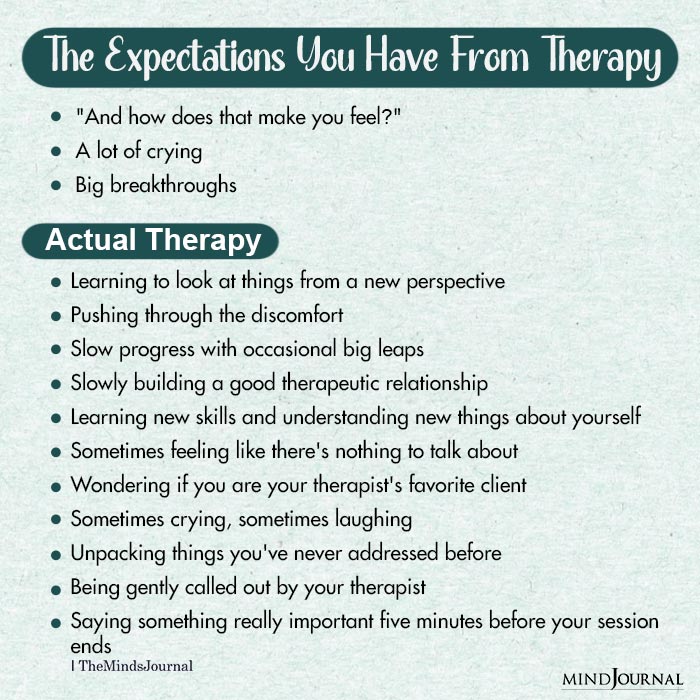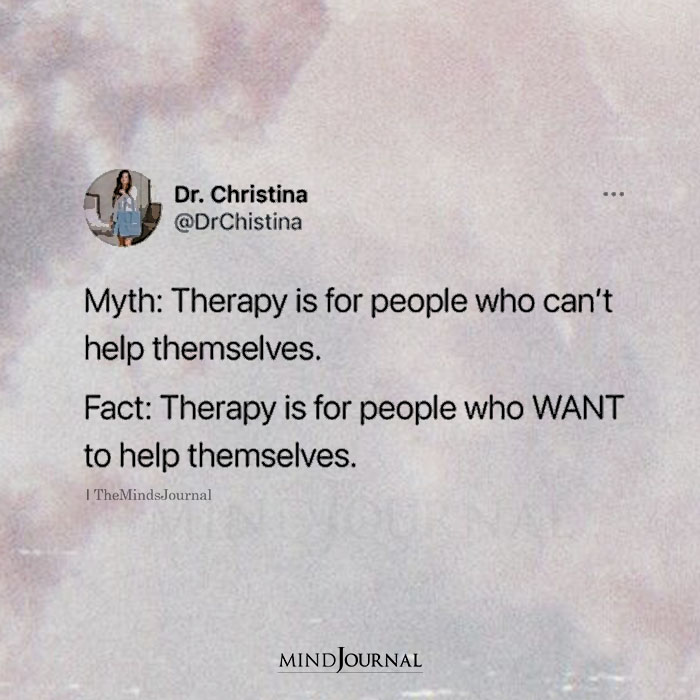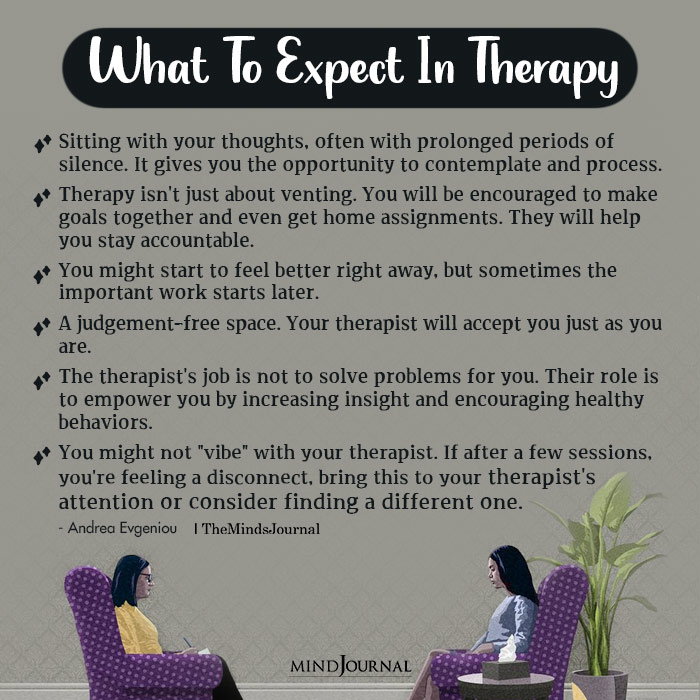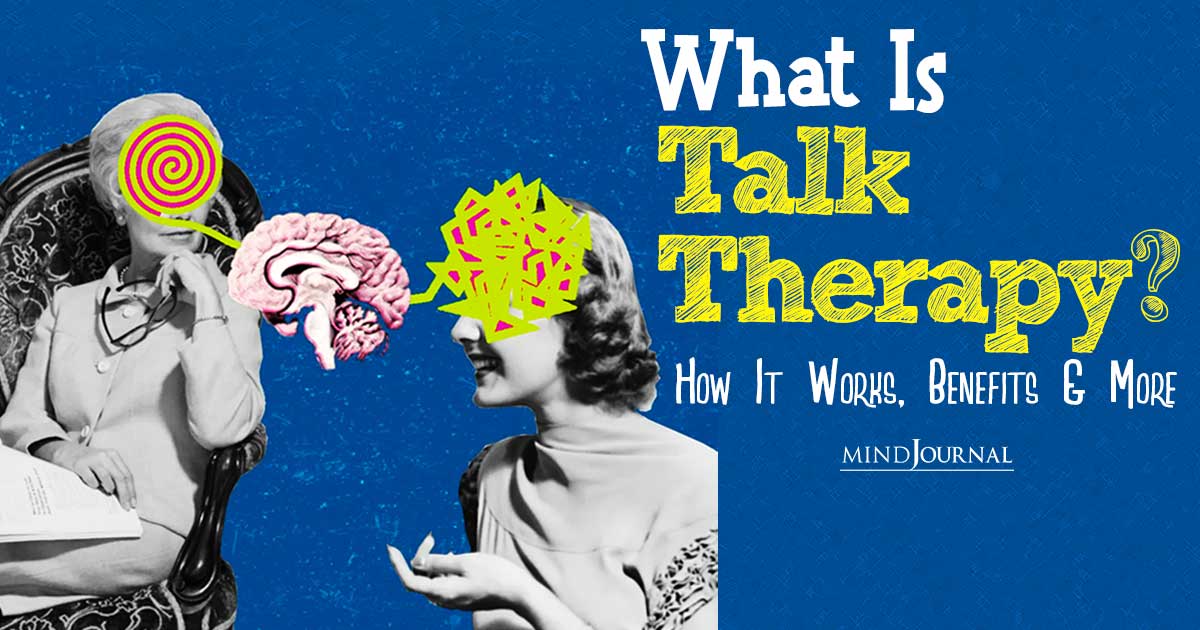You know how when you are sad or overwhelmed, your close ones always reassure you that if you talk about it, you might feel better? It’s true, sometimes talking about what’s bothering you can indeed make you feel better and lighter.
Speaking about your issues, feelings, and emotions with someone is what the concept of talk therapy is all about.
Talk therapy, also known as psychotherapy is one of the best tools out there when it comes to the field of therapy and counseling, in general. So what is talk therapy? What are the benefits of therapy? What are the types of talk therapy? And most importantly, is talk therapy effective? Let’s find out!
Related: 11 Signs You Need To Talk To A Therapist
What Is Talk Therapy?
Talk therapy is a form of mental health treatment that involves talking with a trained professional about your thoughts, feelings, and behaviors. It is designed to help you gain insight into your emotional difficulties and develop effective coping strategies to address them.
The benefits of talk therapy are numerous. It can help you to reduce symptoms of mental health disorders such as anxiety, depression, and PTSD, and improve your overall quality of life.
It can also help you to develop better communication and problem-solving skills, enhance your self-esteem, and improve your relationships with others.
Additionally, the success of it depends on a number of factors, including the therapist’s experience and training, your motivation and willingness to participate in the process, and the strength of the therapeutic relationship between the therapist and you.
It is important to find a therapist who is a good match for your needs and goals and to be open and honest with them about your thoughts and feelings.

Types Of Talk Therapy
Talk therapy is a broad term, and there are different types of talk therapy. They are:
1. Cognitive Behavioral Therapy (CBT)
CBT is a form of talk therapy whose goal is to change negative patterns of behavior and thinking. It is based on the idea that your thoughts, feelings, and behaviors are interconnected and that by changing one, you can change the others.
CBT is often used to treat anxiety, depression, and PTSD, and can be effective in helping individuals to develop coping skills and change self-defeating behaviors.
2. Psychodynamic Therapy
Psychodynamic therapy is based on the idea that your past experiences and unconscious thoughts and emotions can influence your current behavior. It is often used to help individuals with relationship issues, anxiety, and depression.
Psychodynamic therapists work with clients to explore their feelings, memories, and experiences in order to gain insight into their emotional struggles.
3. Humanistic Therapy
Humanistic therapy is a form of talk therapy that focuses on your unique experiences, values, and goals. It is based on the idea that all individuals have the capacity for growth and self-actualization.
Humanistic therapists create a supportive and non-judgmental environment in which you can explore your feelings and develop your own sense of meaning and purpose.
Related: 10 Reasons Why People Refuse to Talk to Therapists
4. Behavioral Therapy
Behavioral therapy focuses on changing patterns of behavior that are causing or contributing to mental health concerns. It is based on the idea that behaviors are learned and can be unlearned or modified through the use of specific techniques and strategies.
The goal of behavioral therapy is to help you develop new, healthier habits and behaviors that will improve your overall well-being.
5. Integrative Therapy or Holistic Therapy
Holistic or integrative therapy is an approach to mental health treatment that takes into account the whole person, including their physical, emotional, and spiritual health. It is based on the idea that all aspects of your life are interconnected and that addressing each of these areas can lead to greater overall well-being.
Holistic or integrative therapists use a variety of techniques and therapies, including mindfulness, yoga, and acupuncture, to help you achieve balance and harmony in your life. The goal is to promote healing and personal growth on all levels.
6. Family Therapy
This is one of those types of talk therapy that focuses on improving communication and relationships within a family system. It is often used to treat family conflict, substance abuse, and other issues that affect the family as a whole.
Family therapists work with all members of the family to identify patterns of behavior and communication that may be contributing to problems and develop strategies to improve family dynamics.
7. Group Therapy
Group therapy is a form of talk therapy that involves a therapist leading a group of individuals who are dealing with similar issues. It is often used to treat substance abuse, anxiety, and depression.
Group therapy provides a supportive and non-judgmental environment in which you can share your experiences and learn from each other’s perspectives.
8. Mindfulness-Based Therapy
Mindfulness-based therapy incorporates mindfulness meditation and other mindfulness practices into the treatment process. It is often used to treat anxiety, depression, and stress-related disorders.
Mindfulness-based therapists work with clients to develop mindfulness skills, such as staying present in the moment and observing thoughts and feelings without judgment.
Related: 4 Major Reasons Why People Lie To Their Therapists About Their Eating Disorders
9 Benefits Of Talk Therapy
1. It has long-term benefits.
This is one of the biggest benefits of talk therapy.
Talk therapy has the benefit of providing long-lasting effects because it not only addresses current issues but also equips individuals with the tools to cope with future challenges.
By addressing underlying issues, talk therapy provides you with the ability to develop better communication, self-awareness, coping mechanisms, and problem-solving skills, which can benefit you throughout your life.
Talk therapy offers a lasting solution that provides you with a sense of empowerment, a reduced risk of relapse, and an increased sense of fulfillment.
2. Reduced symptoms of physical illness.
If you’ve ever wondered “Is talk therapy effective?”, then continue reading.
It has been shown to have a beneficial impact on physical health by reducing the symptoms of various physical illnesses. For example, studies have found that talk therapy can be effective in reducing chronic pain, especially when combined with other treatments such as medication.
Additionally, it has been shown to reduce symptoms of gastrointestinal problems such as irritable bowel syndrome (IBS) and inflammatory bowel disease (IBD), potentially due to the link between stress and gut health.
Similarly, it can also help to reduce the frequency and intensity of headaches and migraines, which can be triggered by stress and anxiety.
By reducing stress and anxiety levels, it can help you manage the symptoms of these physical illnesses, leading to improved overall health and quality of life.
Furthermore, it can also help you better understand the connection between your mental and physical health, allowing you to take a more holistic approach to your well-being.

3. Improved mental health.
This is naturally one of the best and most useful benefits of talk therapy. Rather talk therapy for depression and talk therapy for anxiety is very rewarding.
Talk therapy has been proven effective in treating various mental health conditions such as depression, anxiety, bipolar disorder, and post-traumatic stress disorder. With the guidance of a licensed therapist, you can better understand and manage your emotions and behaviors, leading to improved mental health.
Regular sessions can provide you with a safe space to explore your thoughts and feelings, gain insight into your behaviors, and develop coping mechanisms to manage your symptoms.
You can also learn to identify and challenge negative thought patterns, improve communication skills, and build resilience to stress and adversity. With these tools and strategies, you can experience improved mental health and an overall better quality of life.
4. Increased self-awareness.
Talk therapy provides you with the opportunity to gain a deeper understanding of yourself and your thought patterns, leading to increased self-awareness.
By exploring past experiences, current behaviors, and emotions, you can identify patterns in your thoughts and behaviors that may be hindering your growth and development.
With this newfound awareness, you can make positive changes in your life, such as improving relationships, setting boundaries, and making more informed decisions. Increased self-awareness can also help you manage stress and anxiety more effectively, as you become more attuned to your emotional and physical responses.
By developing a greater understanding of yourself, you can lead more fulfilling lives and build stronger relationships with others.
Related: How Do I Know If a Therapist is Right For Me? 10 Signs
5. Improved coping skills.
One of the benefits of talk therapy is the opportunity to learn effective coping skills to manage negative emotions and other challenges.
A licensed therapist can provide you with tools and techniques to help you cope with difficult situations. These can include mindfulness practices, relaxation techniques, and cognitive restructuring.
By learning these skills, you can develop a greater sense of control over your thoughts and emotions, leading to improved mental health and well-being.
Moreover, you can apply these coping skills to various areas of life, such as work, relationships, and personal goals. By building a strong foundation of coping mechanisms, you can navigate life’s challenges with greater ease and confidence.
6. Better communication skills.
Effective communication is essential for building healthy relationships. Talk therapy can help you develop better communication skills by teaching you how to express your needs and emotions in a clear and assertive manner.
By reducing misunderstandings and conflicts, these improved communication skills can lead to stronger and more fulfilling relationships. With the guidance of a therapist, you can learn to listen actively and empathetically, as well as to communicate your thoughts and emotions effectively.
By improving your communication skills, you can enhance your personal and professional relationships, leading to a more satisfying and fulfilling life.
7. Greater sense of empowerment.
Is talk therapy effective? Of course, it is.
It offers you the opportunity to gain a greater sense of empowerment over your life. You can learn to develop the skills and confidence needed to tackle life’s challenges and make positive changes. This process can lead to a greater sense of control, which can be empowering and transformative.
By learning to understand and manage your emotions and behaviors, you can take charge of your life and create a more fulfilling future. Additionally, it helps you to develop a more positive self-image, improve your relationships, and create a stronger sense of purpose and direction in life.
8. Increased sense of fulfillment.
It can be a valuable tool in helping you find meaning and purpose in your life. By exploring your values, beliefs, and goals with a therapist, you can gain insight into what truly matters to you and what you want to achieve.
You can learn to identify and address any obstacles that may be preventing you from living a more fulfilling life.
This can help you to make positive changes, such as pursuing new hobbies or relationships or making career or lifestyle changes that better align with your values and goals.
9. Improved problem-solving skills.
One of the major benefits of talk therapy is that it can help you develop improved problem-solving skills. You can learn to identify problems, set achievable goals, and develop strategies to overcome challenges.
This process can lead to improved decision-making and greater confidence in your ability to navigate life’s difficulties. By learning effective problem-solving skills, you can become more self-sufficient and better equipped to handle stress and adversity.
Related: The 4 Most Valuable Things I Learned From My Therapists
Pros And Cons Of Talk Therapy
Read on to know more about the pros and cons of talk therapy.
Pros And Cons Of Talk Therapy:
- Improved mental health: It can be highly effective in treating mental health issues such as anxiety, depression, and PTSD.
- Enhanced self-awareness: It can help you gain insight into your emotions, behaviors, and thought patterns, leading to greater self-awareness and self-understanding.
- Strengthened relationships: You can develop better communication and interpersonal skills, leading to stronger and more fulfilling relationships.
- Increased coping skills: It can help you develop effective coping strategies for managing stress, trauma, and other difficult life events.
- Customized treatment: Talk therapy can be tailored to your needs and preferences, allowing for a personalized and effective treatment plan.
Cons of Talk Therapy:
- Cost: Talk therapy can be expensive, particularly if insurance coverage is limited or not available.
- Time commitment: Talk therapy often requires a significant time commitment, with sessions typically lasting at least an hour.
- Stigma: You may feel embarrassed or ashamed about seeking therapy, due to the stigma surrounding mental health issues.
- Reluctance to open up: It can be difficult for you to open up and share personal information with a therapist, particularly in the early stages of therapy.
- No guaranteed results: Talk therapy may not be effective for everyone, and there is no guarantee that it will lead to significant improvements in mental health or quality of life.

Bottomline
The benefits of talk therapy can be life-changing for individuals seeking greater self-awareness, empowerment, and fulfillment in their lives. It is a valuable and effective treatment option for individuals seeking to improve their mental health and overall well-being.
Related: 7 Ways To Know If Therapy Is Working For You
It is important to recognize that talk therapy is not a one-size-fits-all solution and may not be effective for everyone. However, for many individuals, talk therapy can provide the guidance and support needed to overcome challenges and create a more fulfilling future.
As per you, is talk therapy effective? Let us know your thoughts in the comments down below!
Want to know more about how talk therapy works? Check this video out below!
Frequently Asked Questions (FAQs)
What are examples of talk therapy?
Some of the most common examples of talk therapy are – Cognitive behavioral therapy (CBT), Behavioural activation, Interpersonal therapy (IPT), Mindfulness-based cognitive therapy (MBCT), Eye movement desensitization and reprocessing (EMDR), and Guided self-help.
What is the best type of talk therapy?
Cognitive behavioral therapy (CBT) is the best type of talk therapy.
Who needs talk therapy?
Talk therapy can prove to be beneficial for anyone going through a tough time in their life, where they are having to deal with many emotional problems.
What is the difference between talk therapy and counseling?
There’s very little difference between the two since they both majorly refer to talking therapy. Some minor differences might lie in who your therapist is and how they are conducting talk therapy with you.










Leave a Reply